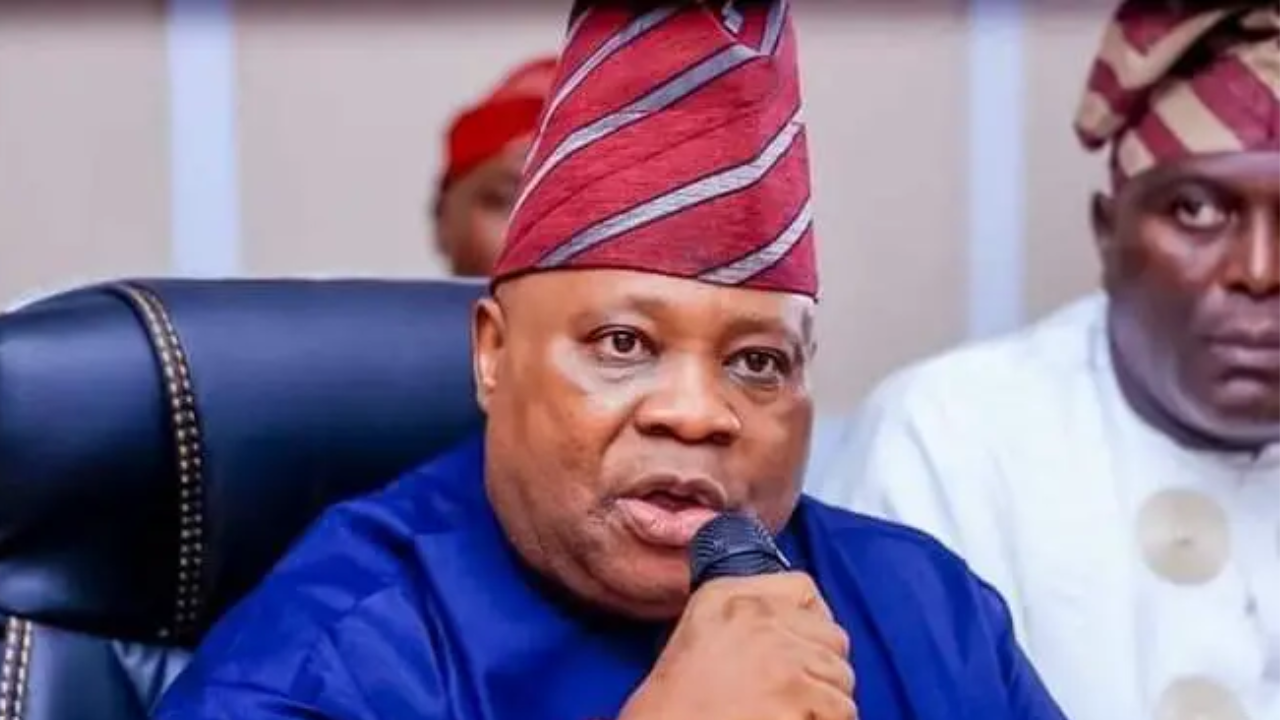By Abdallah el-Kurebe, Editor
The Federal Ministry of Industry, Trade and Investment has the removal of bottlenecks had supported the growth of Medium and Small-scale Enterprises (MSE) and attracted more foreign investment into the country in the last four years.
A statement by the Strategy & Communications Adviser to the Ministry, Bisi Daniels issued Thursday said the removal of bottlenecks had reduced challenges encountered by SMEs and other businesses in areas such as starting a business; access to credit; paying taxes; enforcing contracts or trading within and across borders, amongst others.
It added that investor interest in Nigeria had increased with $90.9 billion recorded in 2018, equivalent to 37% increase over the $66.4 billion tracked in 2017.
Speaking about strides made by ministry in transforming the business environment, the Minister, Dr. Okechukwu Enelamah recalled his promise on resumption of duty that the vision for the Ministry would be for it to be seen as a Ministry of Enabling Environment.
“Through the Presidential Enabling Business Environment Council (PEBEC) the Ministry has made remarkable achievements, which include the jump in the World Bank’s ranking on the Ease of Doing Business; and the removal of several bottlenecks in government processes.
“Efforts are ongoing to further improve on these achievements towards ensuring a more business-friendly environment and to achieve a sub-100 ranking of the World Bank on Ease of Doing Business.
“The Nigerian Industrial Revolution Plan of 2014 promised improved manufacturing capacity and alternative sources of revenue and knowledge-based economy was rightly identified as an area Nigerians could explore,” he added.
This, he said raised the need for the development of a National Intellectual Property Policy for Nigeria was critical and the need to improve the administration of Industrial Property Rights in Nigeria.
“Some of the early results are improved transparency in the processes and applications. The Registries have now been divided into Patents & Designs Registry; and Trademarks Registry, each with a Registrar in accordance with the Acts establishing them.
“For the first time in 51 years, since the Trademarks Act came into force, the Acting Registrar of Trademarks issued the Annual Report on the implementation of the Trademarks Act as stipulated in the Act; as well as the publication of the compendium of all opposition rulings in the Registry of Trademarks,” Enelamah said.
On industrialization, he said the ministry has aggressively been implementing theNigeria Industrial Revolution Plan and the establishment of the Nigeria Industrial Policy and Competitiveness Advisory Council is yielding results.
The Council has made many high-level interventions to address industrial sector issues such as electricity supply, broadband penetration and access roads.
A recent example is the Road Infrastructure Development and Refurbishment Investment Tax Credit Scheme, under whichthe private sector has committed to sponsoring the construction or rehabilitation of road projects across the country.
Noting that MSMEs are key to industrialisation and economic growth, he said the ministry has made noticeable improvement in the access to finance for this category of investors.
“In the last four years, there have been sustained efforts to build capacity, increase access to finance and eliminate bottlenecks to conducting business in Nigeria, “he said.
The Ministry has increased access to finance for MSMES by providing capital for both start-ups and expansion through the interventions of the Bank of Industry and the World Bank-funded Growth and Employment (GEM) Project.
Also, the National Council on Micro Small & Medium Enterprises (NCMES) for more focus on MSMES has been set up.
Between January 2015 and October 2018, the bank disbursed a total of N487.5 billion to 3,334 large, medium and small enterprises.
Under the GEM project, a total of NGN 3.7b (USD 12.2m) has been disbursed to 910 grantees via the grant windows, while over 21,191 MSMEs have received technical assistance.
To accelerate the Nigeria Industrial Revolution Plan, work has continued on Project MINE, (Made in Nigeria for Exports), to aid structural transformation of the Nigerian economy by increasing the manufacturing sector’s contribution to GDP to 20 per cent by 2025; contribute to sustainable inclusive growth by creating 1.5 million new direct manufacturing jobs in the initial phase; and to increase and diversify foreign exchange earnings to at least US$30 billion annually by 2025, by increasing manufacturing sector exports.
In February, the Federal Government signed investment agreements with three Development Finance Institutions; Afreximbank, Bank of Industry and the Nigeria Sovereign Investment Authority (NSIA) for the development of the project.
The three DFIs are among the five to partner with Nigeria SEZ Investment Company Limited (NSEZCO) and the Ministry of Finance Incorporated. The other investment partners are African Development Bank (AfDB) and Africa Finance Corporation (AFC).
NSEZCO intends to raise at least US$500million in equity over the first five years in order to execute its ambitious strategy of becoming a leading investor in special economic zones in the country.
The projects in the pilot phase include Enyimba Economic City, Funtua Cotton Cluster and Lekki Model Industrial Park.
Dr. Enelamah said the Ministry has been partnering actively with the private sector for capital to deliver on the country’s vision for a sustainable all-inclusive socio-economic development.
And that investment promotion capabilities of the Nigeria Investment Promotion Commission (NIPC) have been strengthened with a focus on proactively targeting and attracting domestic and international investors and investments. NIPC is also actively providing after-care support for businesses in Nigeria.
Achievements made so far include increased investor interest in Nigeria with investment announcements of $90.9 billion in 2018, a 37% increase over the $66.4 billion tracked in 2017.
On Nigeria’s trade relations, he said the establishment of the Nigeria Office for Trade Negotiations has provided for a coordinated and integrated approach to trade policy and enabled the country to correct as imbalances in Nigeria trade relationships and reverse negotiating failures.
The Minister gave an update on the African Continental Free Trade Agreement (AfCFTA). He said: “The Nigeria Office for Trade Negotiations (NOTN) played a key role in the conclusion of negotiations to establish the African Continental Free Trade Agreement (AfCFTA) which when activated would be the biggest FTA in the world.
“Nigeria provided the leadership for the conclusion establishing the agreement, at the level of African Chief Trade Negotiator in the Negotiating Forum (NF) and at the Ministerial Level in the African Ministers of Trade (AMOT), led by Ambassador Osakwe and myself respectively.
“Since the signing of the Agreement establishing the African Continental Free Trade Area, the NOTN has undertaken core technical work to sensitize and consult with stakeholders on the agreement. This is to enable the effective implementation of the AfCFTA when a decision is finally made by Nigeria.
“Following concerns raised by some stakeholders regarding signing of this agreement, the Federal Government decided to withhold its signature for more consultation. President Buhari inaugurated a Presidential Committee for Impact and Readiness Assessment of the AfCFTA on 22nd October, 2018; and was followed up with the launch of the Technical Working Group to prepare an assessment and readiness report on the AfCFTA for Mr. President.”



